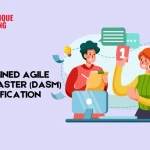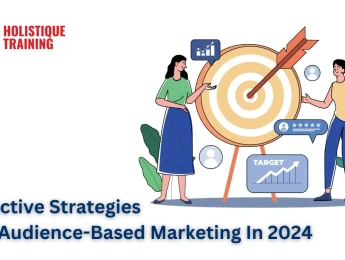- Table of Contents
- Introduction
- How Agile Certifications Impact Your Salary
- What to Look for in a Valuable Agile Certification
- 1. Industry Recognition
- 2. Market Demand
- 3. Practical Focus
- 4. Suitability to Your Career Stage
- The Top 7 Agile Certifications That Pay Off
- 1. Certified ScrumMaster® (CSM) – Scrum Alliance
- 2. PMI Agile Certified Practitioner (PMI-ACP)® – Project Management Institute
- 3. SAFe® Agilist – Scaled Agile
- 4. ICAgile Certified Professional (ICP) – ICAgile
- 5. Certified Scrum Product Owner (CSPO)® – Scrum Alliance
- 6. Disciplined Agile Scrum Master (DASM) – PMI
- 7. AgilePM Foundation/Practitioner – APMG International
- How to Choose the Right Certification for You
- New to Agile?
- Already a Project Manager?
- Working in a Large Organisation?
- In a Product Role?
- Tips to Maximise Your Return on Certification
- Tools That Complement Agile Certifications
- Conclusion
Introduction
In a job market increasingly defined by digital transformation and adaptive processes, Agile has emerged as one of the most valuable professional methodologies across industries. Originally created for software development, Agile has since spread to finance, healthcare, marketing, and even government. The Agile mindset prioritises flexibility, iterative progress, and team collaboration—all critical components in today’s fast-paced, innovation-driven world.
But Agile isn’t just a trendy buzzword; it’s a career catalyst. Professionals with Agile certifications consistently report higher salaries, better job security, and more leadership opportunities. According to a 2024 LinkedIn Workforce Report, Agile Project Managers are among the top 10 most in-demand roles globally, often commanding salaries 25% higher than their non-certified peers.
How Agile Certifications Impact Your Salary
Earning an Agile certification is far more than a mere addition to your CV—it is a strategic investment in your professional development and earning potential. In an increasingly competitive job market, certified professionals stand out as individuals who not only understand the theoretical underpinnings of Agile but can also apply its frameworks in real-world scenarios. This distinction is critical for employers seeking talent that can deliver immediate value to teams and projects.
Agile certifications serve as a clear signal to employers that you possess three critical capabilities:
- Mastery of Agile Principles: This includes a deep understanding of Agile values, such as customer collaboration, responding to change, and iterative delivery—essential for driving results in fast-paced environments.
- Hands-on Experience with Agile Frameworks: Whether it’s Scrum, Kanban, SAFe, or a hybrid model, certification validates that you can apply Agile tools and ceremonies in practice, not just theory.
- Leadership and Collaboration Skills: Certified professionals are often equipped to lead Agile teams, facilitate sprints and retrospectives, and contribute meaningfully to continuous improvement efforts.
These attributes make certified individuals more attractive for higher-level roles that come with greater responsibility—and higher salaries. Certifications often act as a gateway to mid- and senior-level positions such as Scrum Master, Agile Coach, Product Owner, or Delivery Lead, all of which offer significantly higher compensation compared to non-certified roles.
Moreover, as remote and hybrid work environments become the norm, companies are increasingly turning to Agile methods to manage distributed teams, maintain accountability, and ensure consistent delivery. Agile-certified professionals are therefore viewed as pivotal to organisational success in these modern work settings.
In short, Agile certifications are not just credentials; they are accelerators for career advancement, recognition, and financial growth.
What to Look for in a Valuable Agile Certification
While Agile certifications are highly beneficial, it’s important to recognise that not all credentials offer the same value. With the growing popularity of Agile, the market has become saturated with training providers, ranging from globally recognised institutions to lesser-known platforms with limited industry clout. Therefore, selecting the right certification requires a strategic approach aligned with your career goals, industry trends, and learning preferences.
Here are four essential criteria to help you assess the value of any Agile certification:
1. Industry Recognition
One of the most critical factors is the credibility of the certifying body. Opt for certifications issued by globally respected organisations such as Scrum Alliance, Project Management Institute (PMI), Scaled Agile, or ICAgile. These bodies are well-established and widely acknowledged by employers across industries, ensuring that your qualification carries weight in recruitment and promotion decisions. Certifications from lesser-known or unaccredited providers may not offer the same level of recognition or career leverage.
2. Market Demand
Before enrolling in a certification course, review current job listings in your sector or desired role. Pay attention to which certifications are most frequently requested or preferred by employers. For instance, roles in digital product teams may prioritise Certified Scrum Product Owner (CSPO), while enterprise-level organisations often seek SAFe Agilists to manage large-scale implementations. Choosing a certification that aligns with market demand increases your employability and makes you a more competitive candidate in your field.
3. Practical Focus
A valuable certification goes beyond theory. Look for programmes that incorporate practical components, such as case studies, simulation exercises, Agile games, mentorship, or live project work. Hands-on learning ensures that you can confidently apply Agile principles in real scenarios, which is precisely what hiring managers look for. Certifications that offer exam-only pathways with minimal engagement may be quicker, but they are often less respected by employers seeking demonstrated competency.
4. Suitability to Your Career Stage
Agile certifications vary in complexity and intended audience. Some are designed for entry-level professionals who are new to Agile (such as Certified ScrumMaster® (CSM) or ICAgile Certified Professional (ICP)), while others cater to experienced project managers, engineers, or team leaders looking to scale Agile practices (such as PMI-ACP or SAFe Agilist). Selecting a certification appropriate to your current experience level ensures that you gain relevant skills without being overwhelmed or under-challenged.
Pro Tip: Always check whether the certification requires renewal, Continuing Professional Development (CPD) points, or membership fees, as these can add ongoing costs or benefits.
The Top 7 Agile Certifications That Pay Off
Whether you’re just starting your Agile journey or aiming to elevate your leadership credentials, these seven certifications are considered among the most impactful in terms of skill validation, market credibility, and salary growth.
1. Certified ScrumMaster® (CSM) – Scrum Alliance
- Overview: The CSM is often seen as the gateway to Agile for professionals who are new to the methodology or are transitioning from traditional project management roles. It provides a clear understanding of Scrum values, team roles, sprint planning, daily stand-ups, and retrospectives.
- Key Benefits: One of the most globally recognised certifications, the CSM is widely accepted across industries including IT, marketing, education, and finance. The certification process includes a two-day training course followed by an online exam.
- Salary Impact: According to the Scrum Alliance Report, Certified ScrumMasters in the UK earn an average of £65,000, compared to £49,000 for non-certified professionals—marking a 32% increase.
- Ideal for: Beginners, team facilitators, or professionals looking to shift into Agile roles.
2. PMI Agile Certified Practitioner (PMI-ACP)® – Project Management Institute
- Overview: The PMI-ACP is a prestigious credential for experienced project managers who want to deepen their knowledge across multiple Agile methodologies. Unlike CSM, this certification is framework-agnostic and covers Scrum, Kanban, Lean, Extreme Programming (XP), and more.
- Key Benefits: It offers a comprehensive approach to Agile project delivery and is particularly well-suited to hybrid or large-scale organisations that employ mixed methodologies. The certification requires 21 hours of Agile training and 2,000 hours of general project experience.
- Salary Impact: PMI-ACP holders report salaries that are 28% higher than their non-certified peers, as shown in the PMI Earning Power Report.
- Ideal for: Mid to senior-level project managers and team leads.
3. SAFe® Agilist – Scaled Agile
- Overview: SAFe (Scaled Agile Framework) is designed for large enterprises that implement Agile at scale. This certification enables professionals to coordinate Agile release trains (ARTs), lead Lean-Agile transformations, and align strategy with execution.
- Key Benefits: The SAFe Agilist credential is particularly valued by multinational companies and public sector organisations dealing with complex systems or multi-team environments.
- Salary Impact: In the UK, SAFe-certified professionals earn upwards of £75,000 annually, making it one of the most lucrative Agile credentials on the market.
- Ideal for: Senior managers, Agile transformation leaders, and enterprise coaches.
4. ICAgile Certified Professional (ICP) – ICAgile
- Overview: The ICP is a foundational-level certification that focuses on Agile mindset, values, and foundational principles rather than a specific framework. It’s an excellent entry point into the Agile world.
- Key Benefits: Unlike other certifications, the ICP emphasises learning over testing. It is awarded upon completion of accredited training and active participation, which includes hands-on exercises, role-playing, and group work.
- Salary Impact: Early-career professionals who complete the ICP certification often see a 20–25% salary increase, particularly when moving into their first Agile role.
- Ideal for: New graduates, career switchers, or anyone seeking a non-technical introduction to Agile.
5. Certified Scrum Product Owner (CSPO)® – Scrum Alliance
- Overview: Tailored for those involved in product development, the CSPO focuses on managing the product backlog, refining user stories, and maximising value delivery to stakeholders.
- Key Benefits: Unlike the CSM, which focuses on team facilitation, the CSPO empowers professionals to define the vision and priorities of a product. Training is interactive and scenario-based.
- Salary Impact: Product Owners with CSPO certification can earn up to £70,000 annually, especially in digital-first sectors such as fintech, e-commerce, and SaaS.
- Ideal for: Product managers, business analysts, or those working closely with customers and development teams.
6. Disciplined Agile Scrum Master (DASM) – PMI
- Overview: The DASM introduces Disciplined Agile Delivery (DAD), which is a toolkit of multiple Agile and Lean approaches. It allows practitioners to tailor their methods based on team context, rather than rigidly following one framework.
- Key Benefits: Flexibility is the standout feature. DASM is ideal for environments where one-size-fits-all Agile doesn’t work. PMI’s association also lends significant credibility to the certificate.
- Salary Impact: Salaries are typically on par with CSM holders, around £65,000, with potential for more based on implementation scale.
- Ideal for: Adaptive leaders, IT professionals, or project managers in dynamic or hybrid organisations.
7. AgilePM Foundation/Practitioner – APMG International
- Overview: The AgilePM certification is particularly popular in the UK and Europe, especially within the public sector and consultancy roles. It provides a highly structured approach to Agile project management based on the DSDM (Dynamic Systems Development Method) framework.
- Key Benefits: It bridges the gap between traditional PRINCE2 project management and Agile, making it ideal for professionals in regulated or process-heavy environments.
- Salary Impact: AgilePM Practitioners frequently surpass the £60,000 salary mark, particularly in roles requiring governance and accountability alongside agility.
- Ideal for: Project managers in government, banking, or consultancy sectors.
Certification Comparison Table
Certification | Provider | Career Level | UK Avg Salary | Best For |
CSM | Scrum Alliance | Beginner | £65,000 | Cross-functional team members |
PMI-ACP | PMI | Mid/Senior | £70,000 | Project Managers |
SAFe Agilist | Scaled Agile | Senior | £75,000+ | Enterprise-level professionals |
ICP | ICAgile | Entry | £55,000 | Agile beginners |
CSPO | Scrum Alliance | Mid-level | £70,000 | Product Managers |
DASM | PMI | Mid-level | £65,000 | Adaptive leaders |
AgilePM | APMG | All levels | £60,000+ | European market roles |
How to Choose the Right Certification for You
Selecting the most appropriate Agile certification is not a one-size-fits-all decision. It depends heavily on your professional background, current role, career ambitions, and the context in which you work. Here’s a more detailed breakdown to guide your choice:
New to Agile?
If you're just beginning your Agile journey, consider starting with the Certified ScrumMaster® (CSM) or the ICAgile Certified Professional (ICP). These foundational certifications focus on core Agile principles, roles, and ceremonies, providing a strong baseline for further development.
Already a Project Manager?
Experienced project managers can benefit significantly from the PMI Agile Certified Practitioner (PMI-ACP) or AgilePM Foundation/Practitioner. These certifications expand your skillset by integrating Agile methods into your existing project delivery framework, ideal for hybrid and transitional environments.
Working in a Large Organisation?
If you operate in a complex enterprise or multi-team setup, the SAFe® Agilist credential is highly effective. It provides the knowledge and frameworks required to coordinate multiple Agile teams at scale, a key capability in enterprise agility initiatives.
In a Product Role?
Professionals involved in product ownership, development, or business analysis will find the Certified Scrum Product Owner® (CSPO) especially useful. This certification sharpens your ability to prioritise backlogs, define product visions, and manage stakeholder engagement.
Choosing strategically ensures that your certification aligns not just with your current job—but also your future career trajectory.
Tips to Maximise Your Return on Certification
Acquiring a prestigious Agile certification is a significant step, but its value is maximised only when you actively integrate it into your career journey. Here are essential strategies to ensure your investment pays off:
- Update Your Online Presence: Once certified, update your LinkedIn profile, CV, and job portal accounts immediately. Many employers search for certified professionals using these platforms, and visibility can lead to more opportunities.
- Network Strategically: Join Agile communities, both online and offline. Attend industry events, join Slack or Discord groups, and participate in local Agile meetups or PMI chapters. Networking can lead to referrals, collaborations, and even job offers.
- Demonstrate Immediate Impact: Put your learning into practice as soon as possible. Volunteer to lead stand-ups, facilitate retrospectives, or guide sprint planning. Employers value practical application over theory.
- Commit to Continuous Learning: Don’t stop at certification. Master tools like Jira, Miro, Trello, and Confluence—each of which enhances your Agile workflow and makes you more employable.
Tools That Complement Agile Certifications
To fully leverage the power of your certification, consider pairing it with relevant tools that facilitate Agile work. Below is a comparison of commonly used platforms and their synergy with specific certifications:
Tool | Purpose | Certification Synergy |
Jira | Sprint and task management | CSM, SAFe, PMI-ACP |
Miro | Visual collaboration and mapping | ICP, CSPO |
Trello | Simple Agile board management | CSM, ICP |
Confluence | Documentation and knowledge base | All certifications |
Familiarity with these tools not only improves your efficiency in Agile roles but also makes your CV more attractive to tech-driven employers.
Conclusion
In today’s ever-evolving professional landscape, standing still is not an option. Agile certifications offer a future-ready skillset that goes beyond technical know-how—they empower professionals to lead change, improve team dynamics, and accelerate value delivery across industries.
Whether you are looking to pivot careers, secure a promotion, or enter a new market, Agile certifications can act as a career multiplier. The learning process can be completed in just a few weeks, and the benefits—in terms of salary, influence, and job satisfaction—are both tangible and enduring.
The Agile mindset is rooted in continuous improvement. By choosing the right certification and applying it with intent, you’re not only increasing your earning potential—you’re becoming a more adaptable, empowered version of yourself.
Ready to start your Agile journey? Explore certification prep courses today and invest in your future.
























